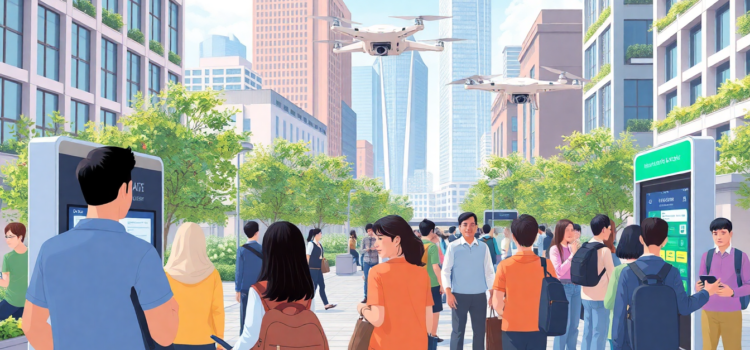
AI-Enhanced Government Services: Transformation and Efficiency by 2030
Revolutionizing Public Sector Efficiency with AI Integration
Integrating AI into government services is expected to streamline processes, resulting in quicker service delivery and enhanced decision-making capabilities. By 2030, these AI tools in public sector innovation are projected to lead to a 30% reduction in administrative costs. This efficiency is driven by AI-driven policy implementation in government, enabling more proactive resource management and operational strategies.
Enhancing Citizen Satisfaction through Personalized Services
AI technologies present an opportunity for governments to deliver personalized and efficient services. These AI-powered citizen engagement strategies could improve citizen satisfaction levels by approximately 25% by tailoring services to individual needs, demonstrating the benefits of AI in public service delivery.
Boosting Government Productivity and Public Sector Reform
Countries investing in AI-driven solutions are projected to experience up to a 20% increase in overall government productivity. Leveraging AI for government efficiency involves data analysis and predictive analytics for better decision-making in areas such as healthcare, education, and public safety. This comprehensive digital government transformation with AI signals a robust public sector reform through AI technologies.
Challenges and Considerations for AI Implementation
Despite the promising potential of AI solutions for smarter governance, several challenges must be addressed. Investment in infrastructure and skilled workforce training remains crucial. Governments need to establish a solid foundation for AI adoption in government service optimization to truly enhance public sector efficiency with AI.










Comments